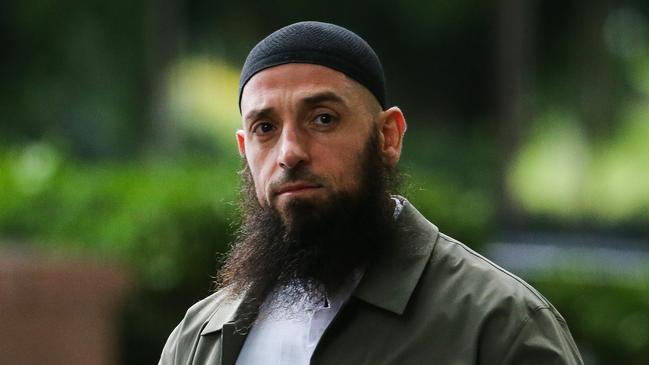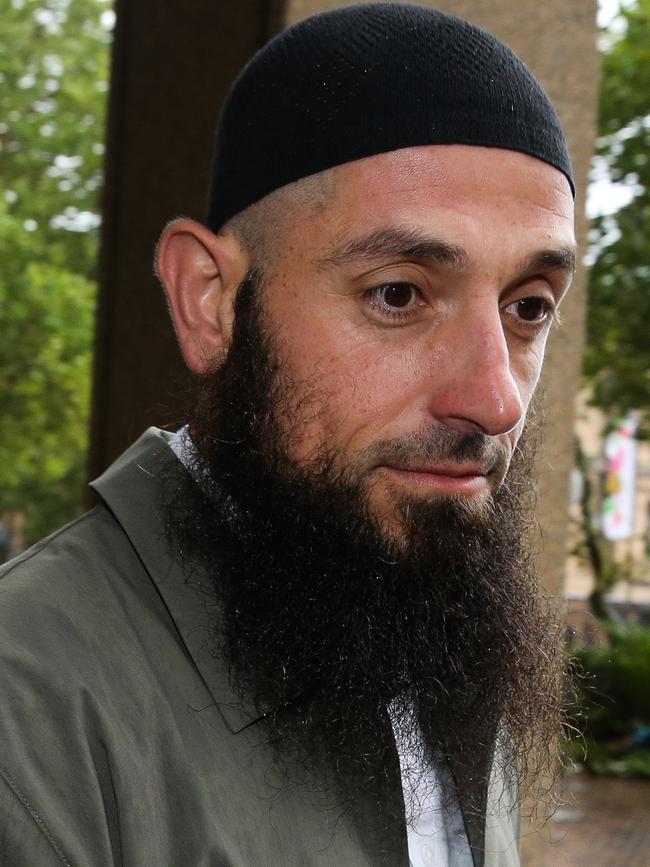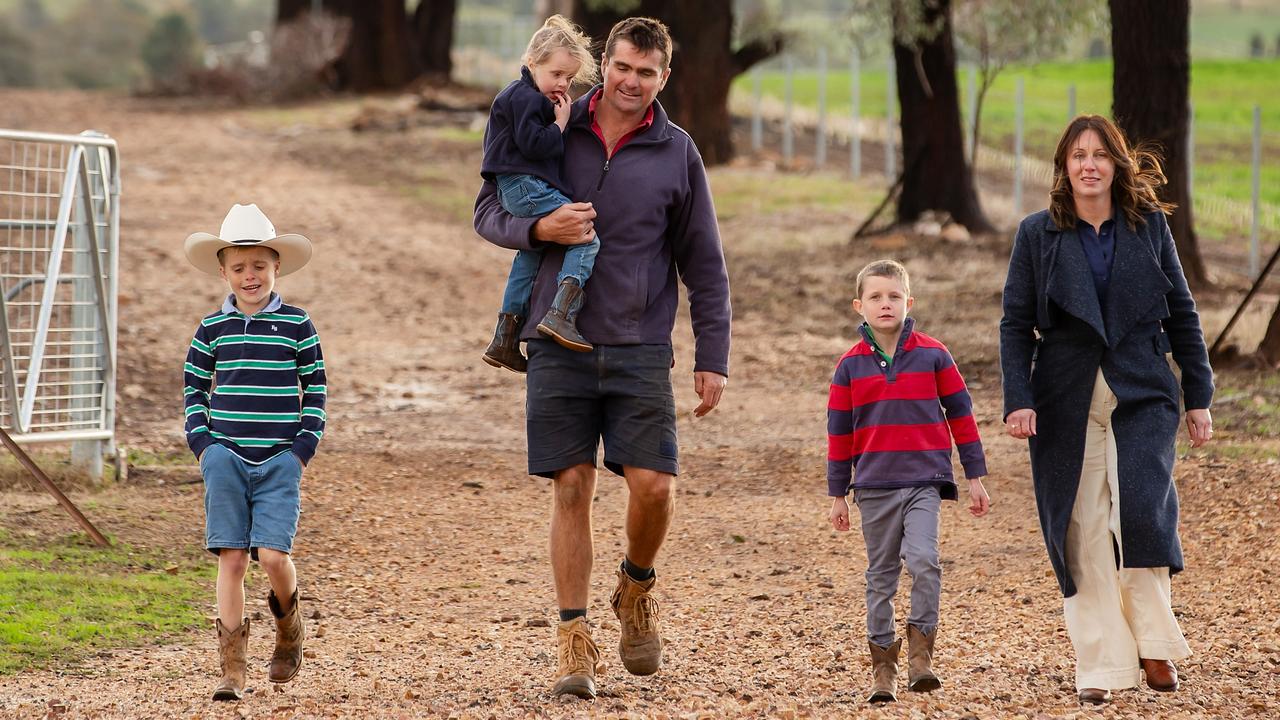Wissam Haddad’s Koran defence shaken by experts
A preacher defending allegedly anti-Semitic sermons may struggle to portray them as accurate readings of the Koran after multiple experts denied the holy text promoted racial stereotypes.

Jihadi preacher Wissam Haddad is expected to argue before a court that he was not discriminating by race or ethnicity but merely quoting Islamic scripture in referring to the Jewish community as “vile and treacherous people”, despite expert witnesses saying the Koran promotes no stereotypes.
Mr Haddad – whose first name is William but who is also known as Abu Ousayd – will face the Federal Court next week over allegations by the Executive Council of Australian Jewry that he breached the Racial Discrimination Act through his sermons in the wake of the Hamas October 7, 2023 attacks on Israel.
Mr Haddad or speakers at his Al Madina Dawah Centre have called Jewish people “descendants of pigs and monkeys”, recited parables about their killing and said people should “spit” on Israel so its citizens “would drown”.
A directions and interlocutory hearing was carried out on Thursday at which Mr Haddad did not appear, where Peter Braham – representing ECAJ co-chief executive Peter Wertheim and deputy president Robert Goot SC – summarised expert evidence set to assess whether Mr Haddad’s sermons were accurate portrayals of Islamic scripture in the public interest and therefore not discriminatory.
Both the applicant and respondent have relied on expert witnesses to assess the speeches and sermons of Mr Haddad, with Mr Wertheim enlisting American professor of Islamic studies and theology Gabriel Reynolds and Mr Haddad calling on Sheik Adel Ibrahim from the Greenacre Prayers Hall in western Sydney.
“Certainly on our reading of both experts, they both say quite explicitly that Islam has nothing to say about people based on their ethnicity or race or religion, but responds to individual merit and individual conduct,” Mr Braham told the court.
“Each of them is an expert in the content of the learned writings of Islam, and has read the speeches ... and then draws some principles out of Islam which explain the extent to which those writings … can be properly extrapolated to generalisations.
“They have a difference of emphasis, but it does seem that both of them reflect the idea that Islam doesn’t support generalisations about people based on race or ethnicity. Both say it explicitly in their reports.”
ECAJ, with Mr Wertheim as the primary applicant, first launched court action against Mr Haddad and his Bankstown-based Al-Madina Dawah Centre in October following a failed mediation process in the Human Rights Commission.

It is seeking declarations that he contravened section 18C of the Racial Discrimination Act, injunctions to remove the sermons from the internet, and an order that the cleric refrain from publishing similar speeches in future.
Mr Wertheim and Mr Goot are also seeking publication of a “corrective notice” on the centre’s social media pages and costs, though not damages or compensation.
Among other things, Mr Haddad, or speakers at his Al-Madina Dawah Centre, have called Jewish people “descendants of pigs and monkeys”, recited parables about their killing, described them as “treacherous people” with their “hands” in media and business, and encouraged jihad.
In most cases, he has claimed that he was referring to or reciting Islamic scripture.
While, in Mr Braham’s telling, Mr Ibrahim believes the preacher accurately portrayed Islamic precepts, the court will likely hear he extended past the teachings of the Quran in promoting broad generalisations about the Jewish ethnicity and religion.
“Each of them says, in their own way, Islam has stories about the life of the prophet, but Islam doesn’t condemn people based on race or ethnicity,” Mr Braham said. “Each of us (applicant and respondent) have in some way taken objection to the other’s expert.
“Mr Ibrahim is saying – and perhaps I’m paraphrasing – Mr Haddad followed that precept, and Professor Reynolds says ‘No he hasn’t; look at this statement, look at that statement’.
“Those are necessary parts of the experts’ function, to say what they consider Mr Haddad to have been saying, in order to provide an opinion about whether it extends beyond the legitimate precepts of Islam thinking.”
Mr Haddad in November made a public defence of his sermons on YouTube where he said he did not intend any insult and was speaking from scripture.
“I brought up verses from the Quran … and sayings (from) Mohammad that speak about the Jews, and (I) said things that the Jewish community felt they’d been insulted over,” he said.
“We can speak about the Quran and what it says about Jews, the Christians can do the same, and the Jews can speak about us ... (The Jewish community) turned it into a big issue.”
Professor Gabriel and Mr Ibrahim will deliver their evidence concurrently next Thursday, with judge Angus Stewart to hear closing submissions next Friday.
In ECAJ’s statement of claim, it alleges at least five sermons by Mr Haddad contained almost 40 defamatory imputations, namely that Jews were “mischievous and shifty … wicked people who love money, and abuse the weak and target Muslims”.
Justice Stewart has previously said “upon quick reading” the case against Mr Haddad was “damning”, and pushed back on an argument that certain sermons were protected by section 18D of the Racial Discrimination Act which provides exemptions to 18C for public interest rhetoric, given it runs counter to his own judgment in the successful case of Greens deputy leader Mehreen Faruqi against One Nation leader Pauline Hanson.
Mr Haddad’s most recent sermons were first revealed in a series of stories by The Australian and prompted investigations from both NSW police and the Australian Federal Police.
Despite the publicity, he continued preaching and compared the coverage of his sermons to Nazi newspapers during World War II “before the Jewish genocide”.
Mr Haddad in a video posted last week said he was concerned Muslim leaders were abandoning their right to quote Islamic texts and had refused him support in his legal battle.
He is considered a “central figure in the Salafi-jihadi network in West Sydney and throughout Australia” by the Middle East Research Institute and has boasted of his friendship with notorious terrorists Khaled Sharrouf and Mohamed Elomar while expressing support for terrorist groups including Islamic State and al-Qa’ida.
The trial begins on Tuesday.



